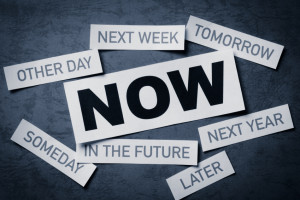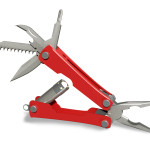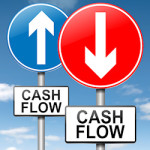 For the most part, Americans live in a fast food, shake and bake, society, which is to say that we have come to expect and demand instant gratification for anything we want in life. That’s typically how people accumulate credit card debt; instant gratification coupled with not having an emergency reserve. Instant gratification is also what keeps people in credit card debt. It’s very difficult to get out of debt if one keeps adding to their debt in pursuit of more stuff.
For the most part, Americans live in a fast food, shake and bake, society, which is to say that we have come to expect and demand instant gratification for anything we want in life. That’s typically how people accumulate credit card debt; instant gratification coupled with not having an emergency reserve. Instant gratification is also what keeps people in credit card debt. It’s very difficult to get out of debt if one keeps adding to their debt in pursuit of more stuff.
The biggest threat to anybody’s financial health is consumer debt and it should be priority one to get out of debt as soon as possible. There are many methods for getting out of debt and some are better than others. When you finally decide you want to get out of debt it is important to develop a strategy to give yourself the best chance at success. There are many things to consider and one of  those things should be “why” you want to get out of debt, because why you want to get out of debt may influence how you go about getting out of debt.
those things should be “why” you want to get out of debt, because why you want to get out of debt may influence how you go about getting out of debt.
Obviously the primary motivation for getting out of debt is to stop paying interest to creditors. However, how you go about getting out of debt may enable you to receive multiple benefits simultaneously.
Here are 6 examples:
- If you would like to improve your credit scores while paying off your debt you should systematically pay each account with a balance down to 50% of its respective limit before paying any individual account in full. As an account balance drops below 50% of its credit limit your credit score will increase, depending on your overall credit profile.
- If you would like to reduce the number of accounts with a balance (i.e., 8, 7, 6, 5, etc.) while paying off your debt you should begin by paying off the account with the lowest balance first. Then proceed to the account with the next lowest balance until each account is paid off.
- If you would like to pay the least amount of interest while paying off your debt you should focus on paying off the account with the lowest interest rate first, even if that account has a zero percent interest rate. The lower the interest rate the more the monthly payment goes toward the principal balance versus interest and the quicker the balance will be paid off. Then you can apply that monthly amount to the next debt you want to pay off.
- If you would like to increase your monthly cash flow while paying off your debt you should focus on paying down accounts where the required minimum monthly payment decreases as you pay down the balance, such as revolving accounts (credit cards). As payments are made on installment loans the required minimum monthly payment remains the same, regardless of the size of the payment, until the account is paid in full.
- If you would like to get out of debt in the shortest period of time you should use the Cash Flow Index strategy and focus on paying off one debt at a time. This strategy focuses on paying off the debt that has the highest minimum monthly payment relative to its current account balance, without regard for the interest rate. In other words, if Credit Account A and Credit Account B both have a $5,000 balance, but Credit Account A is 18% and has a minimum monthly payment of $150 and Credit Account B is 5% and has a minimum monthly payment of $450, you should pay off Credit Account B first. Once Credit Account B is paid off you can redirect that $450 toward the next debt, thus accelerating the pace at which the next credit account is paid off. An important side benefit is that if you experience a sudden financial setback and you need that $450 per month to get back on your feet you could increase your cash flow by that $450 instead of applying it to the debt.
- If you would like to retain access to the money that you apply to pay down any debt you should focus on paying down revolving debts (credit cards) before installment debts (auto and mortgage loans). When you send extra principal payments to a credit card you are still able to access that money in case you need it. When you send extra money to an installment loan you can no longer access that money under any circumstances.
 As you can see, there is no right or wrong way to get out of debt, but there are common mistakes people make that can slow down or completely counteract their progress.
As you can see, there is no right or wrong way to get out of debt, but there are common mistakes people make that can slow down or completely counteract their progress.
I routinely improve my client’s cash flow by hundreds, and sometimes even thousands, of dollars per month by helping them become more financially efficient. If you would like my help developing a strategy to get rid of your debt call me to discuss your specific situation.
Leave a Comment